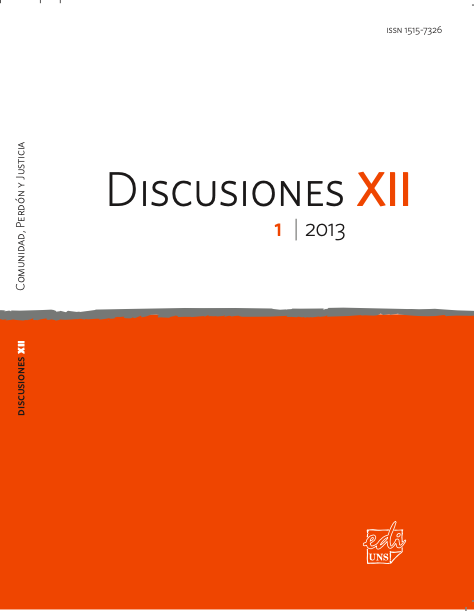How to Found a Community After Crime? Some reflections on the political nature of forgiveness and reconciliation, in light of the Juicio a las juntas in Argentina and the Truth and Reconciliation Commission in South Africa
DOI:
https://doi.org/10.52292/j.dsc.2013.2551Keywords:
Community, Crimes against Humanity, ForgivenessAbstract
The article reflects on the differences in the way in which, in Argentina since 1983, and in South Africa since 1994, the exit from regimes of Terror was processed and the foundations were laid for "new beginnings" in both political communities. In Argentina, we can say in a very simplified way, the choice was made for Justice - and it is no coincidence that the milestones of this process are legal milestones - starting with the Trial of the Juntas, which in 1985 condemned the main actors of the 1976-1983 dictatorship, continuing with the laws of Full Stop and Due Obedience, the amnesty law of 1990 and the declaration of nullity of these last three laws in 2004. In South Africa, in an equally simplified way, the choice was for the Truth, or more precisely, for an amnesty based on the exposition of the Truth, and it is no coincidence that the Commission that has been carrying out this process since 1995 was given the name of the Truth and Reconciliation Commission.
Downloads
Downloads
Published
How to Cite
Issue
Section
License
Discusiones does not withhold rights of reproduction or copyright. Consequently, authors may share the final versions of publications.


